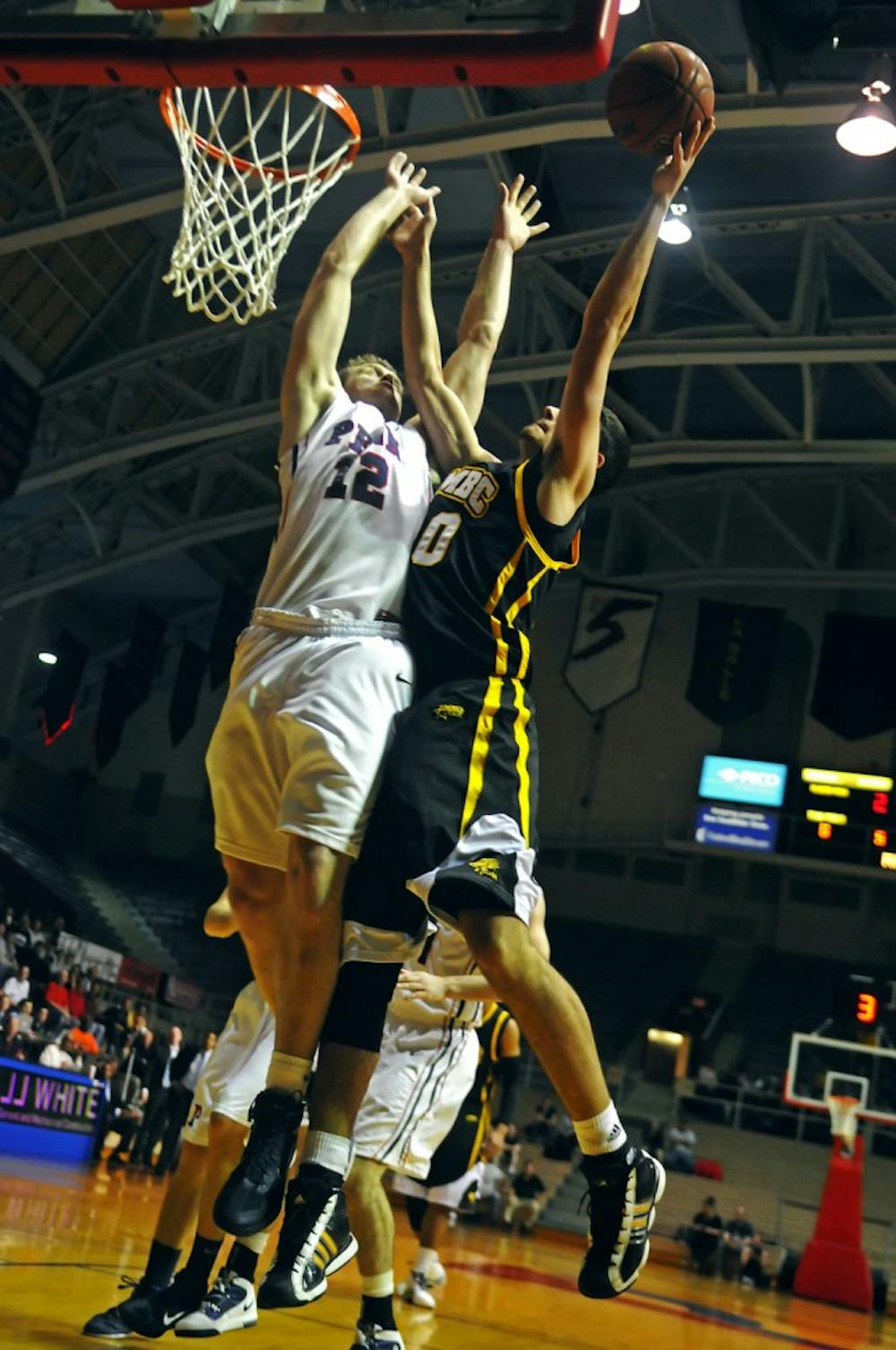In basketball, a team’s success often comes down to matchups. Whether it’s to get a quick basket or to make a defensive stop, creating a lineup that best fits the situation can often determine the outcome of the game.
And from what we’ve seen thus far this season, Penn seems to have an affinity for going to smaller, quicker lineups rather than using their big men.
Although there are benefits to implementing “small ball,” basketball is and always will be a big man’s game. If Penn’s frontcourt players don’t step up soon, the Quakers will learn that the hard way.
For most of the season, coach Jerome Allen has rolled out a starting lineup of Zack Rosen, Tyler Bernardini, Rob Belcore, Jack Eggleston and Andreas Schreiber.
This starting five is a pretty formidable one when it comes to size as everyone — with the exception of Rosen — measures in at 6-foot-6 or taller, with Schreiber standing at 6-foot-9. However, Allen has rarely stuck with this lineup over the course of games, preferring to use a smaller lineup for long stretches.
Schreiber has played an unremarkable 63 minutes in a total of seven games, while the rest of the starters have amassed more then 200 minutes each. The senior was not even on the Penn bench during the team’s last outing against Villanova.
What is more interesting is that Schreiber’s usual substitutes, Conor Turley and Fran Dougherty, have combined for fewer minutes than Rosen, Eggleston and Belcore have individually.
Clearly, the big men are not getting their minutes and the statistics have reflected it.
Among Ivy League teams, Penn allows the highest opponent field goal percentage (45.8) — indicative of a porous interior defense.
Additionally, the Quakers have had trouble on the glass. The Red and Blue have been outrebounded by 4.5 boards per game and they currently average the fewest number of rebounds in the Ancient Eight.
Penn’s smaller lineup has yielded benefits on the offensive end — better floor spacing and more ball movement — but has been giving up too many points on the defensive end due to size mismatches.
This is not to say that the small-ball lineups are solely to blame. Allen has emphasized throughout the season that defense and rebounding is a team effort, not just the job of those playing on the blocks.
Nonetheless, it is clear that the team cannot rely so heavily on small ball to get the job done. While the strategy can act as a spark plug to get the offense going, extended use — especially during the Ivy season when the pace of games tends to slow down — could give an advantage to opponents with a strong inside presence.
There is no quick fix to this, but the Quakers’ big men will have to contribute more. While they don’t necessarily have to increase their scoring output — though an offensive threat down low would most certainly take pressure off of Rosen and Eggleston — they will have to be more active inside offensively and defensively.
To be sure, the season is still young and it is very likely that Allen is still tinkering with lineups to find the best possible combinations.
However, as the season progresses and Ivy play approaches, the Quakers will have to recognize that achieving their goal of bringing an Ivy Championship back to Penn will be a tall order. CHAN PARK is a junior communication major from Basking Ridge, N.J. He can be contacted at dpsports@theDP.com.



